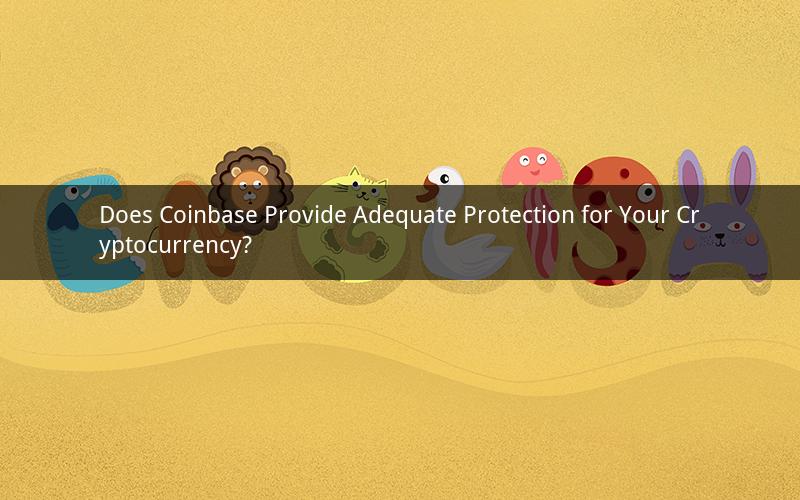
In the rapidly evolving world of cryptocurrencies, the security and protection of digital assets have become a paramount concern for users. Coinbase, one of the leading cryptocurrency exchanges, has garnered a significant user base due to its user-friendly interface and robust security measures. However, many users still question whether Coinbase can genuinely protect their crypto assets. This article delves into the various aspects of Coinbase's security features and their effectiveness in safeguarding your cryptocurrency.
1. Coinbase's Security Infrastructure
Coinbase boasts a robust security infrastructure that includes several layers of protection. The following are some of the key security measures implemented by the platform:
1.1 Multi-Factor Authentication (MFA)
To prevent unauthorized access, Coinbase requires users to enable Multi-Factor Authentication (MFA) for their accounts. MFA adds an extra layer of security by requiring users to provide two or more verification factors, such as a password and a unique code generated by an authentication app.
1.2 Cold Storage
The majority of users' funds are stored in cold storage, which is a secure offline environment. Cold storage wallets are not connected to the internet, making them immune to online hacking attempts. This method minimizes the risk of cyber attacks and ensures that your cryptocurrency remains safe.
1.3 Insurance
Coinbase offers insurance coverage for certain types of cryptocurrency transactions, which provides an additional layer of protection against theft and loss. This insurance policy is subject to certain terms and conditions, so it is crucial to read the policy thoroughly to understand its coverage.
1.4 Secure Socket Layer (SSL) Encryption
Coinbase employs SSL encryption to secure all communication between its users and the platform. This ensures that sensitive information, such as login credentials and personal data, is transmitted securely over the internet.
2. Limitations of Coinbase's Security
While Coinbase offers robust security features, it is important to recognize that no platform can guarantee 100% security. The following are some limitations of Coinbase's security measures:
2.1 User Error
One of the most common reasons for cryptocurrency theft is user error. Users may inadvertently share their private keys or fall victim to phishing scams, leading to the loss of their assets. It is crucial for users to practice good security habits, such as keeping their private keys secure and being cautious of suspicious emails or messages.
2.2 Vulnerabilities in Third-Party Services
Coinbase relies on third-party services for various aspects of its operation, such as payment processing and identity verification. Vulnerabilities in these third-party services can potentially lead to security breaches and the compromise of user data.
2.3 Regulatory Changes
Cryptocurrency regulations are still evolving, and changes in legislation can impact the security and stability of Coinbase and other cryptocurrency exchanges. Users should stay informed about regulatory developments and understand how they might affect their assets.
3. How to Enhance Your Security on Coinbase
To further enhance the security of your cryptocurrency on Coinbase, consider the following best practices:
3.1 Use a Strong, Unique Password
Create a strong, unique password for your Coinbase account and avoid using the same password for other online services. This will minimize the risk of password reuse and reduce the likelihood of your account being compromised.
3.2 Enable Two-Factor Authentication (2FA)
In addition to MFA, enable Two-Factor Authentication (2FA) for your Coinbase account. This will provide an additional layer of security by requiring a second verification factor, such as a text message or an authentication app, when logging in.
3.3 Regularly Monitor Your Account Activity
Keep a close eye on your Coinbase account for any suspicious activity. If you notice any unauthorized transactions, contact Coinbase's customer support immediately.
3.4 Backup Your Private Keys
Store a backup of your private keys in a secure location, such as a hardware wallet or a secure external drive. This will allow you to regain access to your cryptocurrency in case your account is compromised.
Frequently Asked Questions
1. Question: How does Coinbase protect my cryptocurrency from hacking?
Answer: Coinbase protects your cryptocurrency by implementing Multi-Factor Authentication (MFA), storing the majority of funds in cold storage, and offering insurance coverage for certain transactions.
2. Question: Can Coinbase guarantee the safety of my cryptocurrency?
Answer: While Coinbase offers robust security measures, no platform can guarantee 100% security. Users should still practice good security habits and be cautious of potential risks.
3. Question: What should I do if I suspect my Coinbase account has been compromised?
Answer: If you suspect your Coinbase account has been compromised, immediately change your password, enable Two-Factor Authentication (2FA), and contact Coinbase's customer support.
4. Question: Are my cryptocurrency assets insured through Coinbase?
Answer: Coinbase offers insurance coverage for certain types of cryptocurrency transactions, but it is subject to certain terms and conditions. Users should read the policy thoroughly to understand its coverage.
5. Question: How can I enhance the security of my Coinbase account?
Answer: To enhance the security of your Coinbase account, use a strong, unique password, enable Multi-Factor Authentication (MFA), regularly monitor your account activity, and backup your private keys in a secure location.